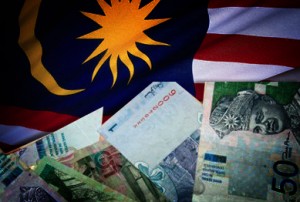Malaysian employers say ‘no’ to cost of living allowance
(Asiaone) – Employers are not in favour of giving out cost of living allowance (Cola) to workers, saying it has already been absorbed into the wage systems.
Slamming the Malaysian Trades Union Congress’ call for employees to be given Cola as “unjustified”, Malaysian Employers Federation (MEF) executive director Shamsuddin Bardan said employers already took into account rising prices when they reviewed their salary scales every three years.
“Although Cola was introduced in the 1970s during the global economic crisis, when the economy improved a few years later, it was incorporated into the wage systems.
“Now, when we adjust our wage system every three years (in the collective bargaining agreements between employers and employees), we adjust the rate of the Cola based on the Consumer Price Index of the day,” said Shamsuddin.
The MTUC is asking for private sector employees to be given a RM300 (S$116) Cola to help them tide over the recent spate of price hikes.
Shamsuddin said paying extra allowance to their employees would be a big challenge for many small and medium-sized companies struggling to cope with higher operational costs due to rising utilities costs and the minimum wage ruling that came into effect on Jan 1.
MEF represents 4,500 member companies and 18 affiliate trade associations.
The MTUC, however, claimed that many employers were not incorporating Cola or factoring in the cost of living in their wage systems.
“That is why the Government needs to regulate the Cola and make it a policy.
“The price hike has been a shock to the people’s system, especially those in the low- and middle-income group, so we hope the Government can help reduce their burden,” said MTUC president Khalid Atan.
“The increased transportation, food and schooling costs have had an immediate impact on the workers in the lower-income and middle-income groups. Many are trying to tighten their belts but how can they when they don’t even have enough to cover the basic essentials.
“It is essential for the Government to introduce the regulation on Cola because almost five million private sector workers are now on minimum wage, which is just RM30 above the poverty line of RM870 per month.”
In the interim period, he suggested that companies assisted by providing subsidised food and lodging for their workers.
“If workers are happy, not worried or stressed about their finances, they will be able to work hard and companies can increase their productivity. This will be a win-win situation.”
He pointed out that the Government provided civil servants between RM100 and RM300 as Cola depending on whether they were working in a city, town or a rural area to the civil service.
Non-officers, who form the bulk of the 1.4 million strong civil service, get RM180 for housing allowance while officers get a minimum of RM250. Government workers also get housing loans at a low interest rate.
MTUC had included a proposal for Cola in its previous demands for a minimum wage regulation to the Government. However, only a minimum wage ruling has been enforced, which puts the minimum pay for workers in peninsular Malaysia at RM900 and RM800 for those in Sabah and Sarawak.
The National Union for Bank Employees (NUBE), which is proposing a RM500 allowance, said that Cola was not impossible to manage for employers as it was already provided to workers in Sabah and Sarawak by many private companies.
“Many employees in Sabah and Sarawak, including those working in the banking sector, receive a Cola of 15 per cent-22.5 per cent of their basic salary. We hope employers can extend it to the workers in the peninsula, especially the banks and government-linked companies.
“We know they, especially the public listed companies, can afford it because they recorded a profit last year,” said NUBE secretary-general J. Solomon.
“The RM300 is a figure in MTUC’s original proposal for Cola in the 1990s, and our cost of living has shot up more since then,” he added.


